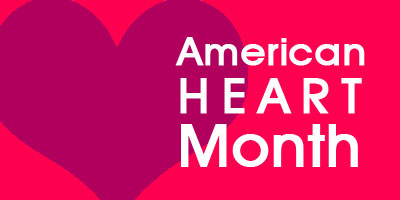Your Monthly Check-Up: Do You Know Your Blood Pressure?

February is American Heart Month – perfect timing as we just celebrated Valentine’s Day – and the Centers for Disease Control and Prevention (CDC) is asking, “Do you know your blood pressure?” According to its website, “The CDC and Million Hearts® – a national effort to prevent one million heart attacks and strokes in the United States by 2017 – are encouraging Americans to know their blood pressure, and if it's high, to make control their goal.”
Uncontrolled high blood pressure is a leading cause of heart disease and stroke. In fact, more than 67 million Americans have high blood pressure. People with high blood pressure are four times more likely to die from a stroke and three times more likely to die from heart disease, compared to those with normal blood pressure.
High blood pressure often shows no signs or symptoms, which is why having your blood pressure checked regularly is important. It's easy to get your blood pressure checked. You can get screened at your doctor's office and drugstores or even check it yourself at home using a home blood pressure monitor.
If you already know you have high blood pressure, the CDC lists some steps you can take to get it under control:
- Find out from your doctor what your blood pressure should be
- Take your blood pressure medication as directed
- Quit smoking, and if you don’t smoke, don’t start
- Reduce your sodium intake
It’s important to note that, “While heart disease doesn't discriminate, your gender, race, ethnicity and where you live can increase your risk,” according to the CDC. “African American men are at the highest risk for heart disease. About two in five African Americans have high blood pressure, but only half have it under control.”
The CDC points to a recent article in the American Journal of Preventive Medicine that shows that
Americans aged 30 to 74 who live the Southeast—specifically, Indiana, Kentucky, West Virginia, Oklahoma, Arkansas, Tennessee, Louisiana, Mississippi and Georgia—are at higher risk of developing heart disease over the next 10 years than people who live in other parts of the country. Many of these states have a large African American population.
Visit the CDC website at http://www.cdc.gov/features/heartmonth/ for information about high blood pressure and resources for helping you or your loved ones get under control and keep stay there. You’ll also find information about smoking cessation, healthy eating and sodium reduction right on the web page.
Wellness is an important part of life at Hinda, which is why we dedicate at least one post per month to wellness news and trending topics. Will you pledge to make control your goal?
